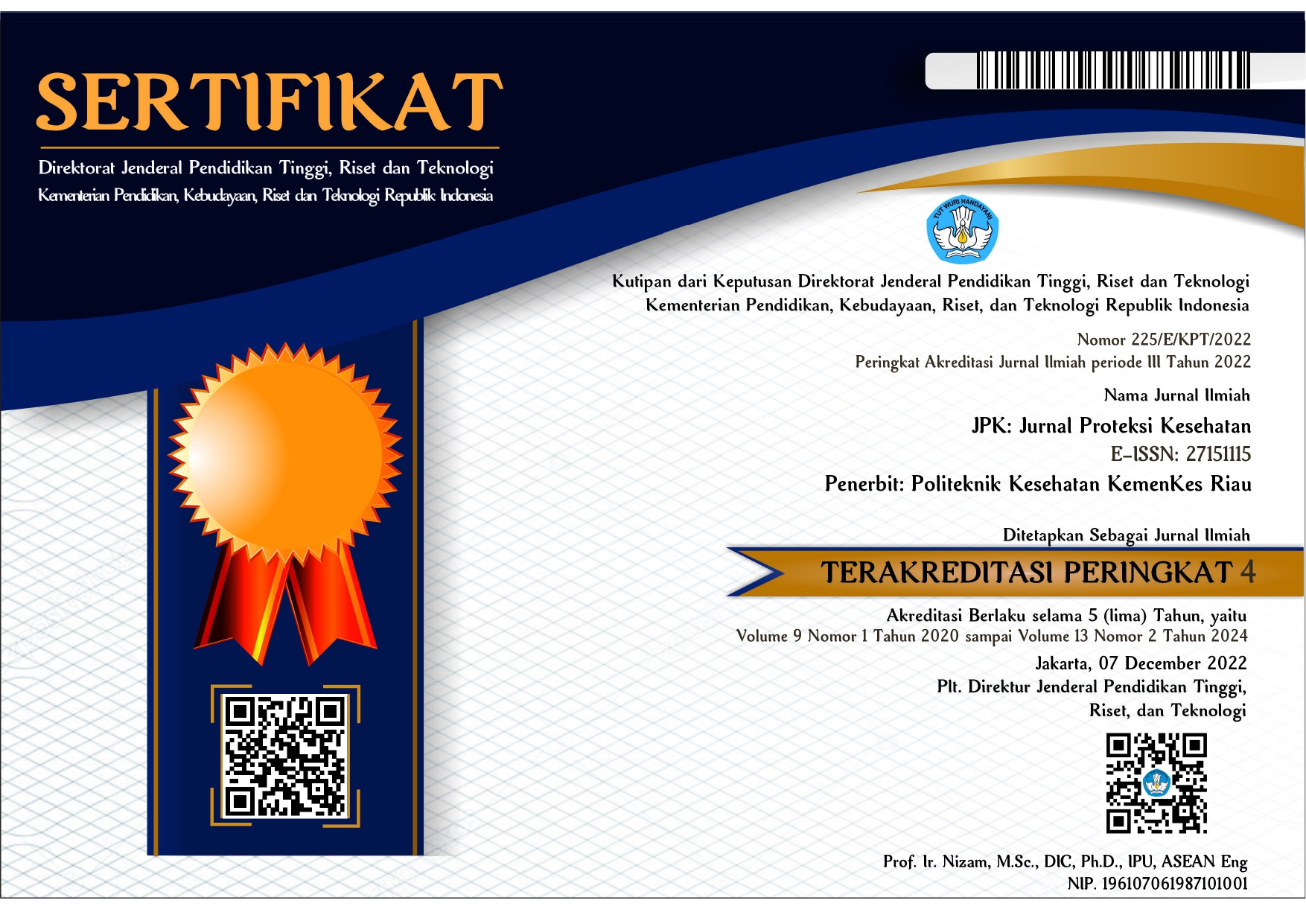The Effect of Forest Honey for Appetite of Stunting Toddlers in Ranah Singkuang Village, Kampar Regency
DOI:
https://doi.org/10.36929/jpk.v10i2.369Abstrak
The problem of short children (stunting) is one of the nutritional problems that is still be the focus of the goverment until now. One of the reasons is the lack of nutritional consumption in children aged 24-59 months will have an impact on their growth and development. The purpose of this study was to determine the effect of giving honey on the nutritional status of stunting toddlers in Kampar districk. The spesific target to be achieved is a change in nutritional status and changes in appetite for toddlers by giving honey regularly twice a day as much as 20 grams per day, 10 grams in the morning and grams in the afternoon. The research method used in this study is a quasi experimental research method with one group pre post test design.The results showed thet giving honey could significantly increase toddler’s appetite (p=0.048). This is because it is suspected that honey has high levels of sugar and levulose so that it is easlily absorbed by the intestines along withother organic substances so that it can function as stimulant for digestion and improve appetite.















